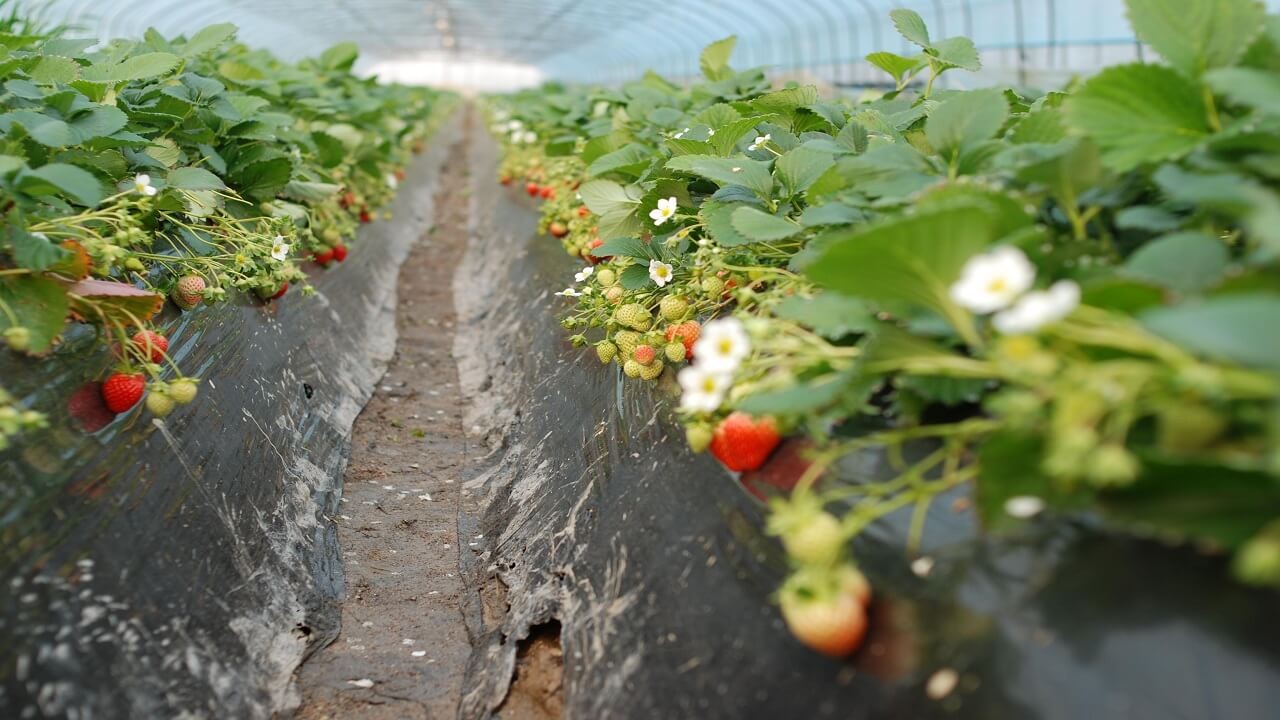
Agriculture in Nigeria
September 14, 2023, 1:00 pm
Agriculture in Nigeria is the science or practice of cultivating the land and keeping or breeding animals for food. From this definition, you can see that there are two distinct branches or parts of agriculture.
Agriculture in Nigeria
These parts are: cultivating the land (crops/plants) and breeding animals. These two parts of agriculture are both very wide with each of them having its own universe. The aspect of agriculture that deals with crops is called Agronomy. Agronomy is the science concerned with the relationship between crops and their environment. While the aspect of agriculture that deals with animals is called Animal Husbandry. Animal husbandry is the care and management of cattle, sheep, horse etc.
Agriculture has a practice and science has been around for as long as humanity has been on planet earth.
Agriculture Industry
Naturally any human endeavor that has been around as long as humanity has would evolve from a hobbyist or amateur level to a full-fledged professional practice. Agriculture has not been left out of such an evolution. The practice of agriculture has evolved into a full-fledged global industry with many branches and fields of practice. The professional practice of agriculture is known as Agribusiness. Agribusiness is the industry concerned with the production, processing and distribution of agricultural products or with farm machinery and services.
The size (or GDP) of the world economy is expected to rise to $105 trillion in 2023 and agriculture as an industry contributes 4% of this amount—this means the value of the world agriculture industry is $4.2 trillion. Despite just contributing 4% to the size or value of the world economy, the agriculture industry employs 27% of the world’s labor force. The world’s labor force is made up of 3.44 billion people and 928 million of these people work in the agriculture industry.
Agriculture in Nigeria
According to World Bank estimates, the population of Nigeria is 218 million. The size or GDP of the Nigerian economy is $477 billion. The Nigerian economy can be split into two parts: Oil Sector and Non-Oil Sector. Agriculture in Nigeria belongs to the Non-oil sector along with other industries like Information & Communication, Accommodation and Food Services, Arts entertainment and recreation, Finance and Insurance, Professional scientific and technical services, Education and Other Services.
Agriculture in Nigeria is made up of four sub-activities: Crop Production, Livestock, Forestry and Fishing. While the Nigerian economy is heavily dependent on oil, agriculture still contributes a significant amount to Nigeria’s economy. The National Bureau of Statistics estimates that 25% of the GDP of the Nigerian economy is composed of the agriculture sector (a total value of N4.575 trillion) and over 70% of Nigeria’s labor force is employed in the agricultural sector. Nigeria’s economic growth over the last five years has been driven by growth in agriculture, telecommunications, and services.
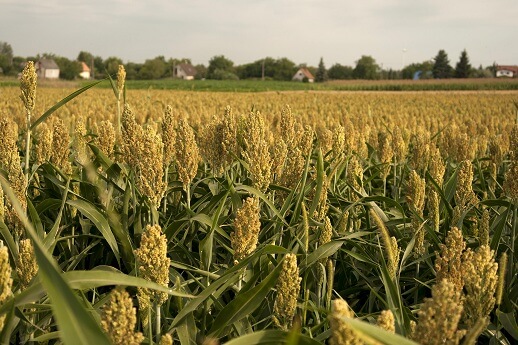
The agriculture industry in Nigeria is mainly occupied by the production and processing of the following produce: cocoa, peanuts, cotton, palm oil, corn, rice, sorghum, millet, cassava (manioc, tapioca), yams, rubber, cattle, sheep, goats, pigs, timber and fish. Most of these produce are consumed in Nigeria while some of them are exported. Agriculture in Nigeria contributes 5% of the economic goods exported out of Nigeria, while the other 95% of exports is made up of petroleum and petroleum products.
In Nigeria, the government institution responsible for Agriculture in Nigeria, its development and transformation is the Federal Ministry of Agriculture and Rural Development (FMARD). This ministry is primarily funded by the Federal Government of Nigeria and it currently superintends almost fifty parastatals operating as either key departments or agencies across the country. The Ministry has 2 major departments namely Technical and Service Departments:
• Technical Departments: Agriculture (Trees and Crops), Fisheries, Livestock, Land Resources, Fertilizer, Food Reserve & Storage and Rural Development.
• Service Departments: Finance, Human Resources, Procurement, PPAS (Plan, Policy, Analysis & Statistics) and Co-operatives.
The FMARD is headed by Abubakar Kyari who was appointed by Nigeria’s President, Bola Ahmed Tinubu. President Tinubu also appointed Aliyu Sabi Abdullahi as the new Minister of State for Agriculture, and Dr. Ernest Umakhihe is the Permanent Secretary under a newly created Ministry of Agriculture And Rural Development.
Agriculture Policies in Nigeria
In 2011, the administration of President Jonathan launched an Agricultural Transformation Agenda which was managed by the Federal Ministry of Agriculture and Rural Development. The intended outcome of the agenda is to promote agriculture in Nigeria as a business, integrate the agricultural value chain and make agriculture a key driver of Nigeria's economic growth. To achieve this agenda the government put in place some new measures.
The policies of the FAMRD for agriculture in Nigeria can be broken into the following 5 parts:
1. Fiscal Policies
2. Domestic Content for Food (Enabling Legislations)
3. Industrial Policies
4. Financial Service Policies
5. Agricultural Policies
Fiscal Policies
These policies seek to accomplish the following objectives for agriculture in Nigeria:
• Zero tariffs (custom, excise and value added) for import of agricultural equipment and agro-processing equipment
• Tax holidays for investors putting processing plants in staple crop processing zones
• Increase tariff on any commodity that Nigeria can produce (rice, starch, sugar, wheat etc.) to promote domestic production and local content
• Current policy on import levy of 5% for brown rice and 30% for polished milled rice, and 5% on raw sugar and 10% on starches should be increased and revenue used to support domestic production
• Supportive incentives for investors for blending plants for ethanol
Domestic Content for Food (Enabling Legislations)
The end-results of this policy for agriculture in Nigeria are:
• 10% Cassava Flour substitution for bread wheat flour
• Blending 10% ethanol with petrol.
Industrial Policies
The industrial policies seek to achieve these goals for agriculture in Nigeria:
• Move gradually away from fertilizer consumption subsidies to support for local fertilizer manufacturing leveraging the gas industrialization policy
Financial Service Policies
These policies seek to accomplish the following objectives for agriculture in Nigeria:
• Incentives for access of farmers to weather index insurance
• Remove the current monopoly on agricultural insurance by the National Agricultural Insurance Company and liberalize to allow private sector insurance companies
Agricultural Policies
The key objectives of these policies for agriculture in Nigeria are:
• Liberalize foundation seed policy to allow private sector to commercialize seeds
Eliminate government distribution of fertilizers and replace with private sector distribution
• Move away from a flat fertilizer price subsidy to targeted support to small holder farmers
Incentives to engage young commercial farmers for farming as a business
Development of Agribusiness Entrepreneurship Centers
• Farm skill acquisition centers
• Access to land and finance
• Create institutions to support the agricultural transformation agenda
• Marketing Corporations, to replace marketing boards
• Transform the Agricultural Research Council (ARCN) to a National Agricultural Transformation Agency like EMPRAPA that transformed Brazilian agriculture
• Guaranteed minimum price for food crops to stabilize prices
• Revise the Land Use Act to enable easier access to land for investors
• Rapid expansion in irrigation facilities and revamping of existing ones
Agriculture Businesses in Nigeria
Despite the many problems of agriculture in Nigeria, there are a lot of agriculture businesses in Nigeria both on a subsistence (small) scale and on a large scale. All these agriculture businesses, in their various scale and nature, can be classified under four main categories. These categories are Crop Production, Livestock, Forestry and Fishing.
1. Crop Production
Nigeria is blessed with large expanse of arable lands which make growing and production of crops and plants a viable business in Nigeria. Recently, growth in the agricultural sector is being driven by Crop Production output, which accounted for 93.45% of overall nominal growth in the agriculture sector. Some of the agriculture businesses which fall under this category are:
•Rice Farming: Nigeria has one of the highest rice consumption rates of in the world. Nigeria consumes 7million metric tonnes of rice annually. A large proportion of this rice demand was being met by importations from Asia (from countries like Brazil, Vietnam, Thailand, India etc.) However, there’s being a recent push by the government for increased local rice production and processing capacity. Some state governments like Kebbi, Kano, Ebonyi, Anambra, Niger, Ogun and Nasarawa have risen to the challenge of local rice production while some private companies too have ventured into this business.
• Cassava Farming: Cassava is one of the crops that are well farmed in Nigeria. Garri, the most common staple food in Nigeria, is made from Cassava. Other food delicacies like tapioca, fufu, starch etc. are made from Cassava. The Federal Government of Nigeria is also pursuing a policy of replacing a percentage of the wheat flour used in baking bread with cassava. Cassava production is very crucial to agriculture in Nigeria
•Maize Farming: Maize or corn farming is another major sub division of crop production in Nigeria. Over 7 million tonnes of maize is produced annually in Nigeria. Maize or Corn is used to make cereals, flour and other local food delicacies like Tuwo, Pap (Ogi) etc. Corn is also used in animal feed as it is a major carbohydrate source for animals. Corn also has a good export market and because of its attractive price, many corn farmers are opting to export their corn harvest rather than selling them for local consumption.
• Cocoa Farming: Cocoa is one of the cash crops produced in Nigeria. It is a key crop component of agriculture in Nigeria. Cocoa is farmed majorly in the south west geopolitical zone of Nigeria. It was once the major foreign exchange earner for the entire country. Over 500,000 metric Tonnes of cocoa is produced in Nigeria and exported to the United States and European Union.
Other crops that are being grown in Nigeria are millet, yam, rubber, groundnut, cotton
2. Livestock
Livestock farming has to do with rearing animals mostly for local consumption. The most common livestock farming in Nigeria are:
• Cattle Farming: Cattle and cow rearing are one of the most common livestock farming in Nigeria. These animals are mostly raised in the northern part of Nigeria in a nomadic arrangement. This nomadic arrangement has created a lot of conflict between the [Fulani] herdsmen and the host communities where these cattle feed. This conflict has prompted interest in the ranching method of cattle farming and the Federal Government of Nigeria is also looking into the importation of nutrient-rich grass to support the ranching method of cattle farming in Nigeria.
• Goat Farming: Goat is another common meat-producing animal that is reared in Nigeria. Goat farming in Nigeria isn’t reared in a nomadic arrangement. The goats are mostly raised in a semi-ranching method where the goats are housed in a fixed location and all their feeding needs are met within their fixed location. Occasionally the goats are allowed to roam outside their fixed location. This is a very common practice of agriculture in Nigeria.
• Poultry Farming: This is one of the most common livestock farming in Nigeria. It involves the rearing of birds for eggs and for their meat. It is a very profitable business with excellent cash flow which a lot of Nigerians have taken up in various forms and scale
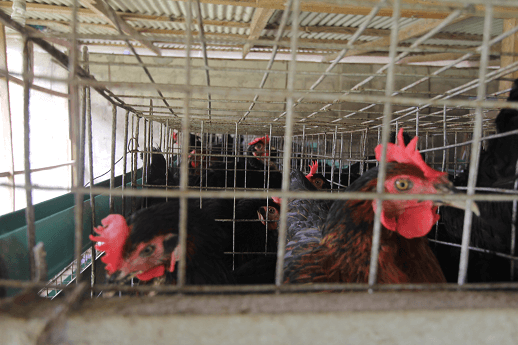
• Pig Farming: This aspect of agriculture in Nigeria involves the rearing of pigs for meat. Pig farming is very common in the southern part of Nigeria and it is also a very profitable type of livestock farming. Some common breeds of pigs used in pig farming are Lacombe, Large White, Berkshire, Guinea Hog, Saddleback etc.
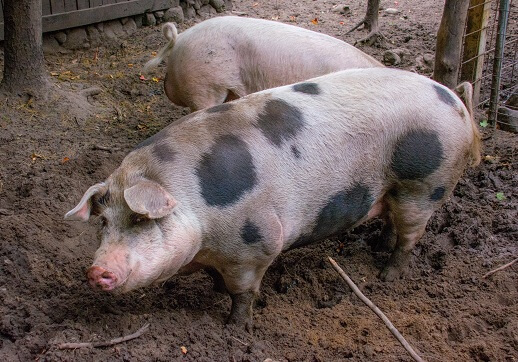
3. Forestry
This aspect of agriculture in Nigeria is primarily involved in cutting down trees and processing them into plywood, veneer, pulp, panel and other forms used for construction, paper and furniture making. The specie or types of trees used in this aspect of agriculture are mahogany, acacia, mansonia, timber, oak etc.
4. Fishing
Fishing is the sum total of activities that has to do with production, rearing and processing of aquatic animals for food consumption. It is a very viable agriculture business which has been a mainstay of the Nigerian economy for many years. It is made up of the following sub division:
• Aquaculture: This aspect of agriculture in Nigeria involves the rearing and raising of aquatic animals in a man-made or man-controlled environment. The most common form of this type of fishing is the rearing of catfish—a very rugged aquatic animal that can thrive in the most unpleasant environment. Thousands of Nigerians all over the country are involved in catfish farming because of its profitable nature.
• Commercial Fishing: This aspect of agriculture in Nigeria [fishing] involves using ships, trawlers and other sea-faring vehicles to go into the deep oceans or into the wilds to catch fishes and other aquatic animals. In this aspect of fishing, the aquatic animals are allowed to grow in their natural environment and then harvested or caught by deploying nets on trawlers and other sea-faring vehicle built for fishing. Apart from catching fishes, other aquatic animals like shrimps, crabs, octopus etc. are brought to the market through this means.
These four major branches of agriculture in Nigeria also have allied industries and services which cater to them and add value to the raw materials produced. Incredible opportunities and profits abound for the savvy entrepreneur who realize the importance of agriculture and can offer services that will add value and improve efficiencies of the practice of agriculture in Nigeria.
Let us know in the comments below about any developments and challenges in the Nigerian agriculutre industry.
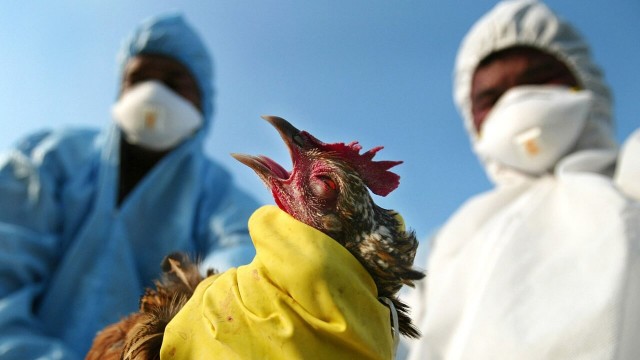
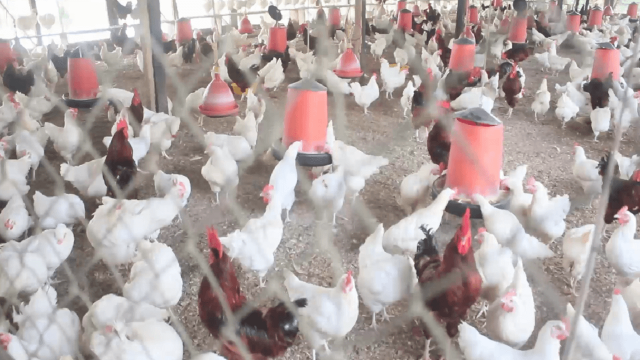


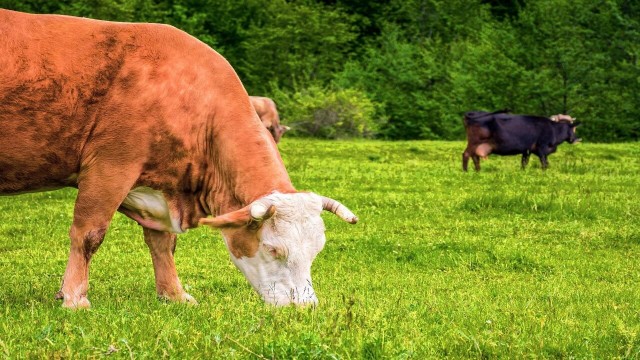
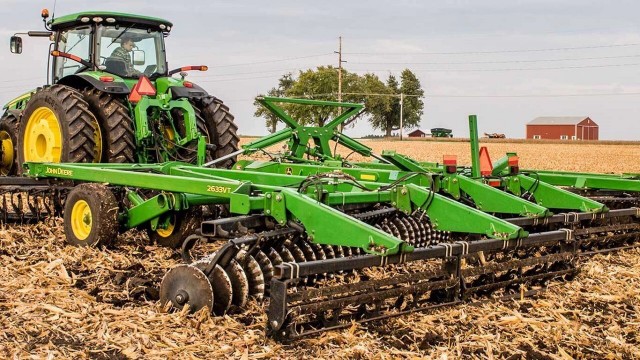

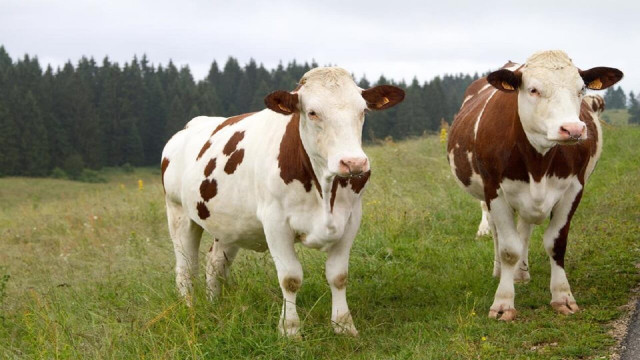
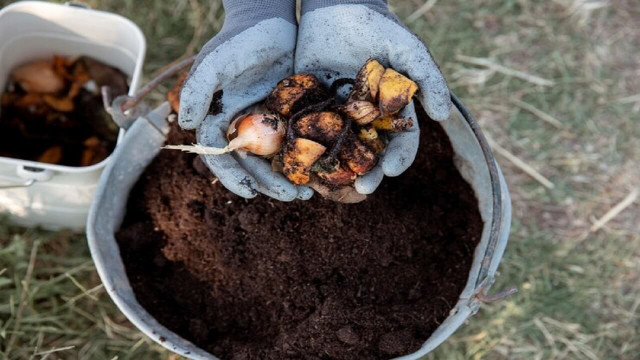
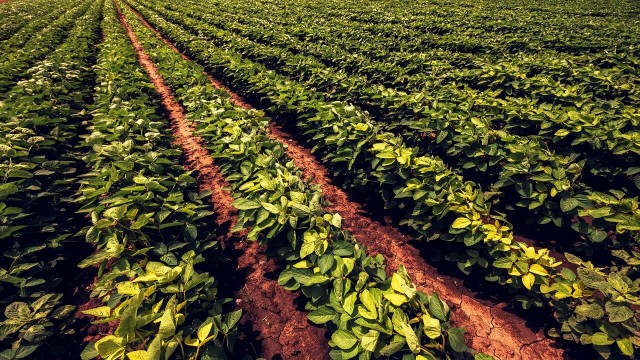
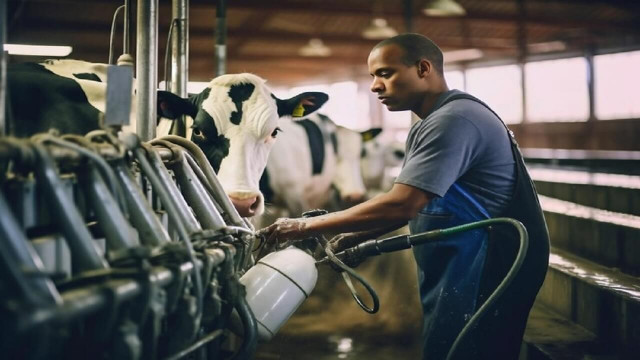

Share This Article: